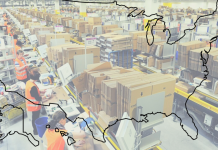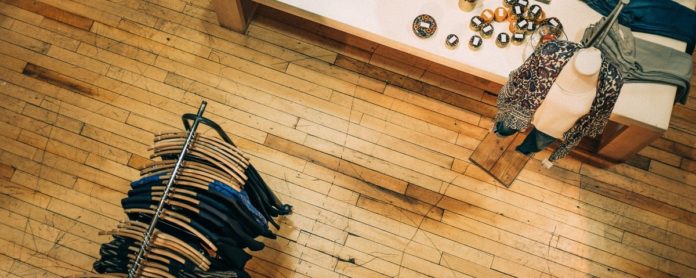[ad_1]
E-Commerce Companies are Snatching up More Commercial Space
The growing popularity of online shopping is hardly breaking news — consumers have been comparing prices from the comfort of their sofas for years now, and the rapid growth of competitively priced e-commerce giants like Amazon and Alibaba have made online shopping the most efficient and cost-effective choice for many consumers.
The advantage of maintaining only warehouse and distribution properties is obvious: online retailers don’t have to pay rent for pricey brick-and-mortar retail space, nor do they have to employ staff to manage stock and run the registers for these stores.
The impact of this change has been especially noticeable in recent years: JCPenney closed nearly 14% of their physical stores in February, and on a national scale, retailers have already announced thousands of planned store employee layoffs in 2017. Meanwhile, these same retail giants are employing staff focused exclusively on online and supply chain operations in even greater numbers.
On the flip side, several prominent online brands have recently expanded into permanent or temporary physical locations, demonstrating that the lines between online and physical retail are becoming increasingly blurred. Let’s take a look at digital-born brands whose offices are growing, and those that have successfully navigated the IRL store experience:
1. Warby Parker
Although eyeglass retailer Warby Parker was founded as an online-only entity back in 2010, its transition to brick-and-mortar stores has been so seamless that many consumers may not even know about its digital roots. The brand opened its first retail location in 2013, and has since grown to some 46 locations. Warby Parker CEO Neil Blumenthal recently told the Wall Street Journal that he could “envision a future with 800 to 1,000 physical stores,” signaling that the eyewear brand’s retail success is part of a long-term play.
2. Away Luggage
Away Luggage may be the new kid on the e-commerce block, but the luxury online travel brand has already opened physical concept stores in Manhattan’s SoHo neighborhood, Los Angeles, and London.
Co-founders (and Warby Parker alumni) Steph Korey and Jen Rubio acknowledge they’ve been watching the same retail trends that have shaped Warby’s trajectory: “We discovered that there was an appetite for being able to touch and feel and get [a product on] the same day,” Korey explained in an interview with New York Business Journal. “A lot of the businesses that started online are being thoughtful about how they establish a brick-and-mortar store presence, and are able to sort of weather the real estate market [in New York].”
3. S’well
S’well water bottles emerged in 2010 with an ambitious mission: CEO & Founder Sarah Kauss created the company with the intention of completely eliminating the disposable plastic water bottle. Strategic partnerships, celebrity shout-outs, and a coveted spot on O, The Oprah Magazine’s list of “Must-Have Things for Summer” have helped propel the brand to digital success. And while S’well does not have its own store locations, retail giants like Target, Nordstrom, and Starbucks all sell the trendy bottles. So unstoppable is the brand’s momentum that the company just moved into a 25,000 square-foot office space in the Flatiron District.
4. Plated
Launched in 2012, food delivery service Plated specializes in affordable, pre-designed at-home meal kits. The rapidly expanding startup recently signed a ten-year lease for a 23,000 square foot office space in Manhattan’s Chelsea neighborhood after outgrowing its 11,000 square foot digs elsewhere in the neighborhood. When considered alongside the company’s 84,000 square foot warehouse in the Bronx, the recent headquarters expansion signals significant anticipated growth in New York City and beyond.
5. Indochino
Custom men’s suit designer Indochino got its start in 2007. Although the brand’s online store was initially quite successful, Indochino’s customers expressed a desire to try on suits before buying them. In an effort to supplement their online presence with a tangible shopping experience, the brand recently launched a series of “Traveling Tailor” pop-up shops where customers can meet with tailors and receive personalized style and fitting advice.
Though the convenience of online shopping is a luxury that consumers will pay for, suits need to fit perfectly to be worth the cash — so it’s unsurprising that Indochino has seen success emerge from the early returns of these in-person shops.
This article originally appeared on reonomy.com
[ad_2]



















